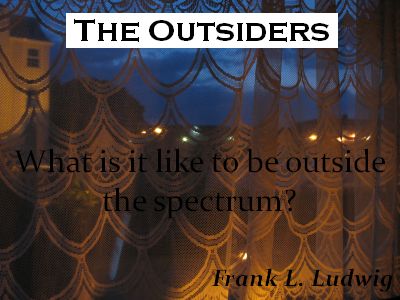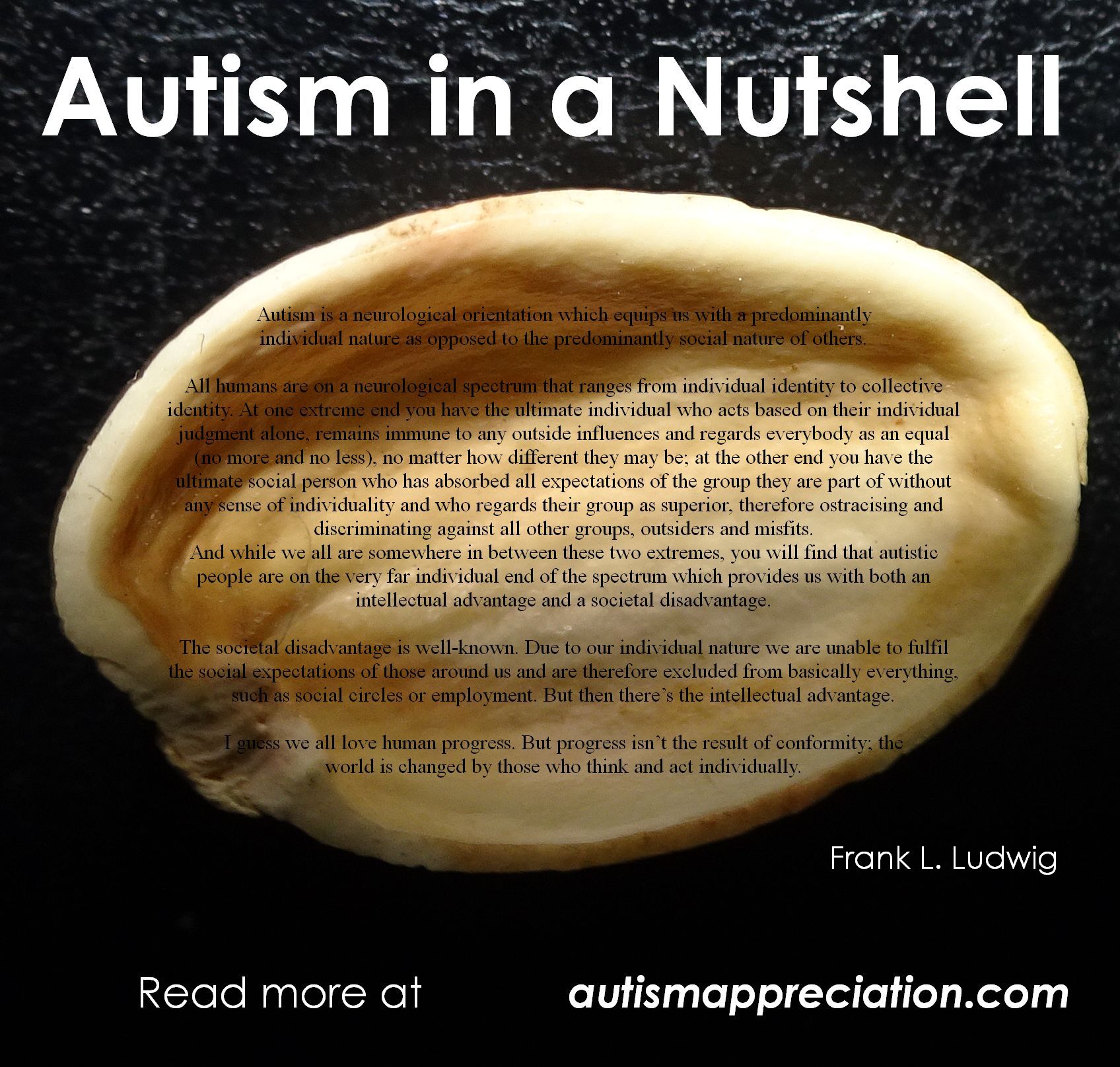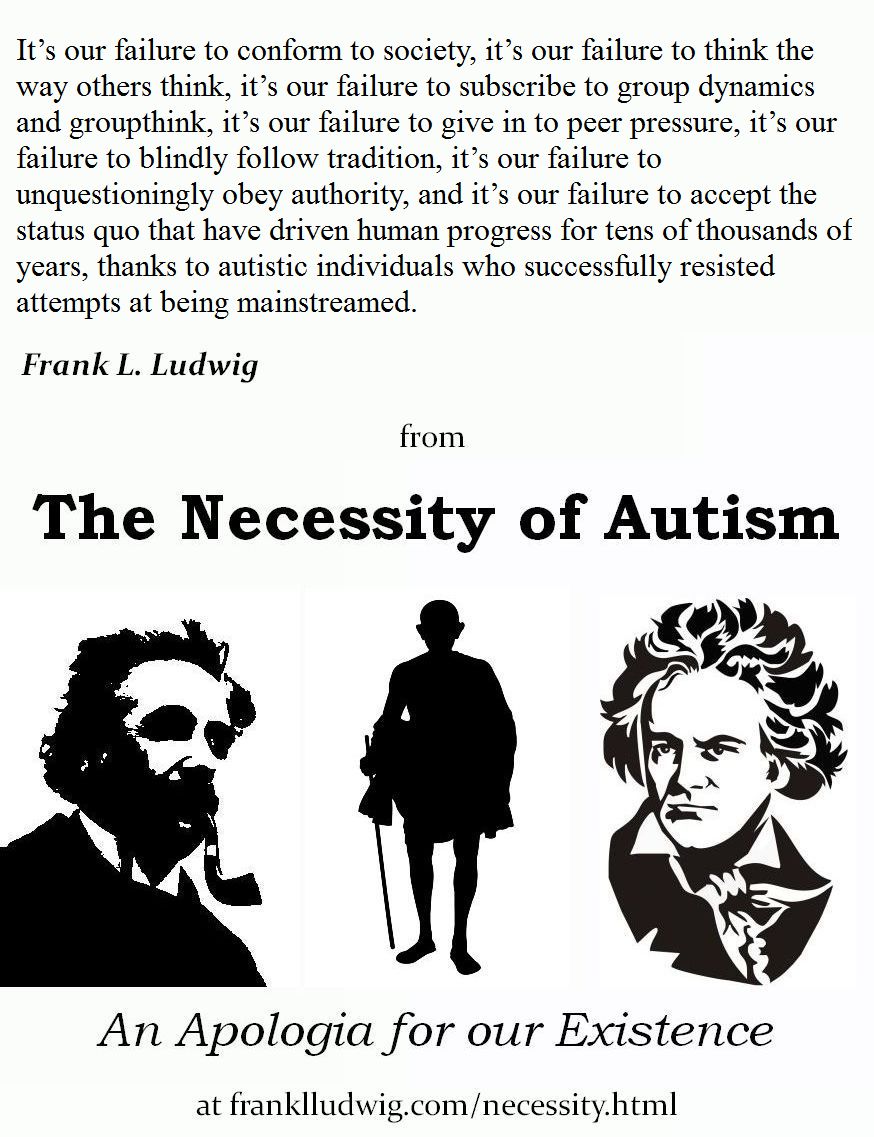
Read more on
|
Tweet
|
For reasons yet unknown the vast majority of humans are, through no fault of their own, born outside the autistic spectrum. There is no known cure for the condition, and we will have to learn, whether we like it or not, to live with them.
Outsiders seem to have an inborn need for hierarchies, and they can be very susceptible to peer pressure. They also tend to be obsessively concerned about their social status and material wealth. For many the pursuit of these takes over their personalities entirely and leaves them with little or no regard for the rights of others. Some only seem to live for the accumulation of wealth and power, and there are known cases of outsiders going as far as organising mass killings, torture and starvation to secure and enhance their position of power or their wealth.
From an early age outsiders learn to be, as they call it, ‘economical with the truth’. This can be as harmless as paying false compliments in order to get into someone’s good books, but in extreme cases it can also cause mass deception on an epic scale, leading to the discrimination and persecution of certain groups and even to world wars. The aforementioned herd mentality of most outsiders makes it easy to manipulate them accordingly, even if the motives and the dishonesty of their leaders are blatantly obvious. Many have a severely impaired sense of justice, and even if they are aware of an injustice committed against others, only a few of them develop the ability to speak up.
It appears that outsiders have an innate ability to communicate with and manipulate each other without words which they call ‘non-verbal communication’. Techniques include the use of a certain tone of voice, facial expressions and body language.
Outsiders learn by memorisation and repetition. While some of them develop the mental capability to question and inquire, the vast majority accept anything they are taught by an authority figure. Their thoughts follow certain patterns they were instructed in, and hardly any outsider is capable of thinking outside the box.
While outsiders are able to multitask, they have difficulties concentrating on any task intensively and giving it their full attention.
More than those on the spectrum, outsiders have a major problem when it comes to surmounting childhood indoctrination. In most cases they are unable to overcome it, and so they pass it on to the next generation.
While their lack of focus and inability to think outside the box make it difficult for them to pursue careers in science or the arts, they can still be useful members of society. For example, their ability to economise the truth makes them excellent salesmen, their desire to socialise makes them indispensable for the tourism and hospitality sector, and their talent to interpret non-verbal cues comes in handy when assessing potentially dangerous situations, such as for a member of the police force. And while, despite all their shortcomings, there may be some small advantages as well, outsiders have no place in positions of power; and while most of them don’t even seek such positions, those who do do so for merely selfish reasons and will use that position to exploit the people who trust them and impose their views and rules on everybody else.

